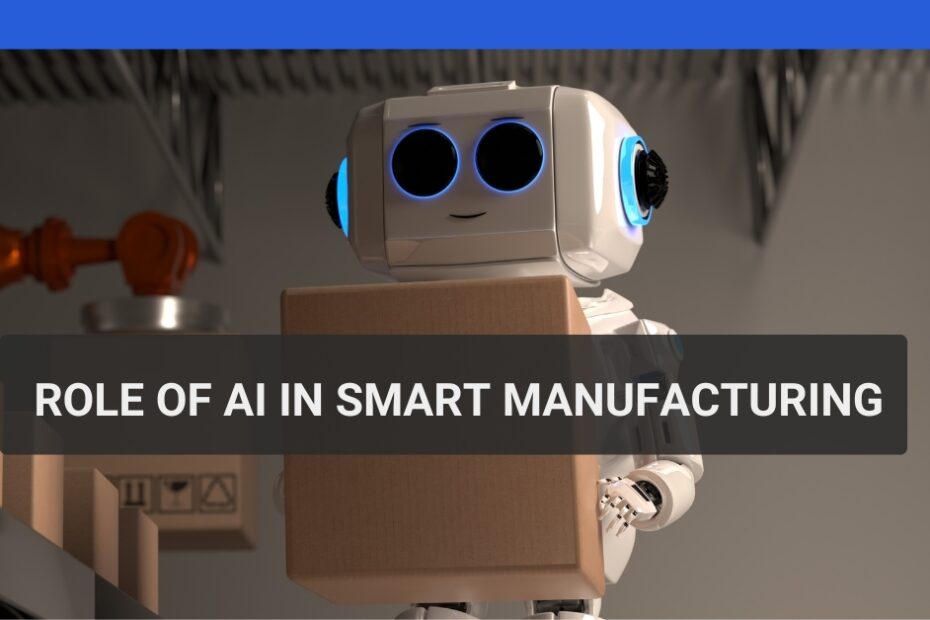In manufacturing, artificial intelligence (AI) is revolutionizing industry and promoting innovation through boosting efficiency. To keep up with the competition, companies must be able to apply AI in areas like smart manufacturing. It dwells on how businesses can incorporate AI into their production systems using insights from industry professionals and recent developments.
Understanding Role Of AI in Smart Manufacturing
Manufacturing is undergoing a massive transformation due to artificial intelligence (AI), which can process huge amounts of data and execute complex tasks. For example, AI can be applied to predictive maintenance, quality control, supply chain optimization and robot automation. Through AI implementation, manufacturers can enhance productivity levels while minimizing costs as well as improving product quality.
Tips for Successful Integration of AI
-
Assess Readiness/ Set Clear Goals
Before embracing AI, organizations must assess whether they are ready for it by considering their current processes, infrastructures and employee capabilities. Equally important is that companies should set clear objectives that are attainable; they need to know specific areas where AI would have significant impacts for example reducing downtime by utilizing predictive maintenance or enhancing product quality through real-time monitoring.
-
Investing in the Right Technologies
The AI landscape is variegated, and various technologies are in place that includes machine learning, computer vision, natural language processing. There is a need to identify the right technologies which match a company’s goals. Making investments in AI solutions that can scale up as well as provide some flexibility means that the business will be prepared for future improvements as well as its evolution.
-
Building a Skilled Workforce
There must be a skilled labor force to be successful with AI in smart manufacturing. Companies should dedicate resources towards training and improving employees on AI technology. This entails hiring data scientists, AI experts and engineers who would design, deploy and maintain AI systems within companies. It also involves fostering an environment where innovation is embraced hence making learning to be a continuous process.
-
Ensuring Data Quality and Security
For AI to work effectively it depends on quality information. Businesses have to possess robust data management practices that will guarantee accuracy, consistency and security of their data assets. By enforcing data governance frameworks together with investment in cyber-security measures are deliberate strategies aimed at protecting sensitive information while building trust on the system performance.
-
Engaging with Tech Partners
Engaging technology partners and AI practitioners can expedite the adoption of AI. Collaborations with industry leaders, academic institutions and technological vendors offer cutting-edge innovations access and best practices. Moreover, these partnerships may share valuable insights and support throughout the integration of AI journey.
-
Emphasizing Ethical AI Practices
As artificial intelligence (AI) increasingly pervades manufacturing, ethical considerations should not be overlooked. Companies must come up with ethical guidelines for using AI that are transparent, accountable and fair in their applications of it. Trust is built among stakeholders by addressing ethical concerns so that responsible application of AI can be promoted.
Real-World Applications of AI in Manufacturing
Predictive Maintenance: For instance, an AI-powered predictive maintenance system relies on a machinery sensor to help predict equipment failures before they occur. This reduces downtime, minimizes maintenance costs as well as prolongs the equipment’s life span.
Quality Control: Using computer vision and machine learning techniques during real-time production inspections identifies flaws to maintain high standards of quality thus reducing wastage as well as increasing customer satisfaction.
Supply Chain Optimization: They are improved by AI algorithms which anticipate demand, manage stock levels, and identify potential disruptions consequently saving money and improving delivery performance.
Robotics and Automation: This leads to high productivity due to precision in repetitive tasks performed by AI-based robots and automation systems. Additionally, it enables employees to focus on complex jobs that require more intelligence.
Conclusion
The impact of artificial intelligence on the manufacturing industry is enormous. Companies can make great strides in efficiency, quality, and competitiveness by strategically incorporating AI into their operations. For companies to successfully adopt AI technologies, they need a well thought out plan in place as well as investment in technology infrastructure and human resources while also ensuring adherence to ethical standards. When it comes to smart manufacturing embracing AI pushes organizations towards industry leader status that will guarantee success tomorrow.
For more details about how you can benefit from using artificial intelligence (AI) in your product manufacturing sector, reach us through USAT Inc..
Feel free to adjust any sections or add additional information specific to USAT Inc. to make the article more tailored to your needs.

